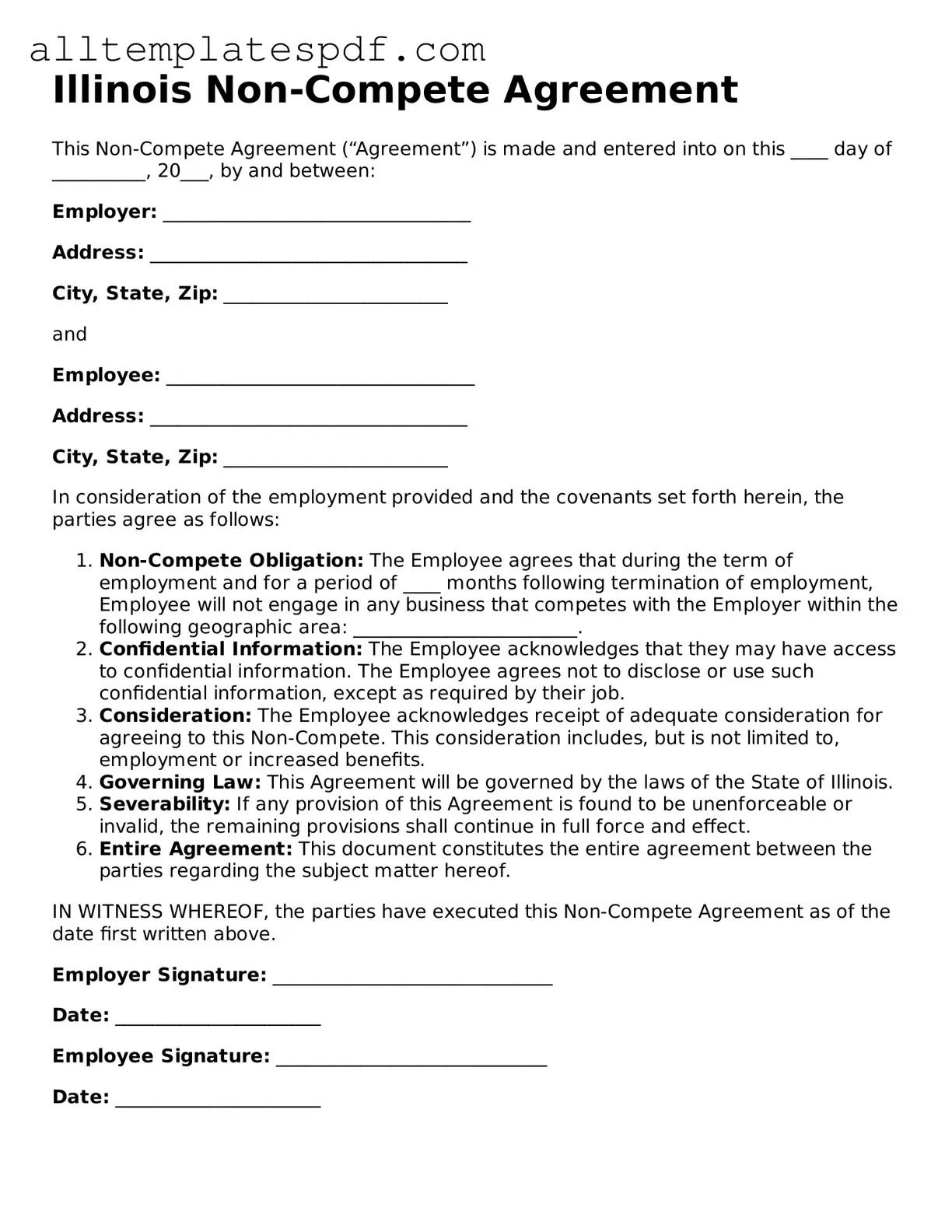Blank Non-compete Agreement Template for the State of Illinois
A Non-compete Agreement in Illinois is a legal document that restricts an employee from engaging in competitive activities with their employer after leaving the company. This agreement is designed to protect the employer's business interests and confidential information. Understanding its terms is crucial for both employers and employees to ensure fair practices and compliance with state laws.
To get started on your Non-compete Agreement, click the button below to fill out the form.
Open Editor

Blank Non-compete Agreement Template for the State of Illinois
Open Editor
Fast and easy form completion
Complete Non-compete Agreement digitally — fast and easy.
Open Editor
or
↓ Non-compete Agreement PDF Form
